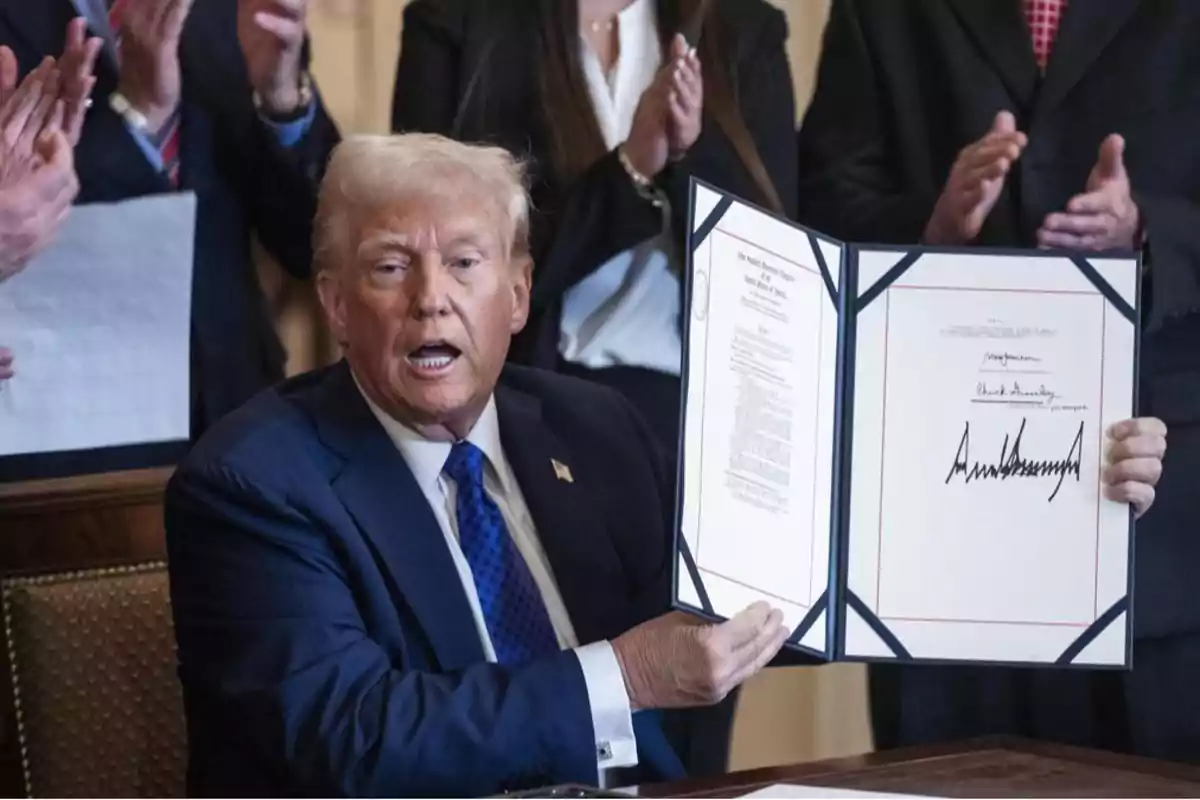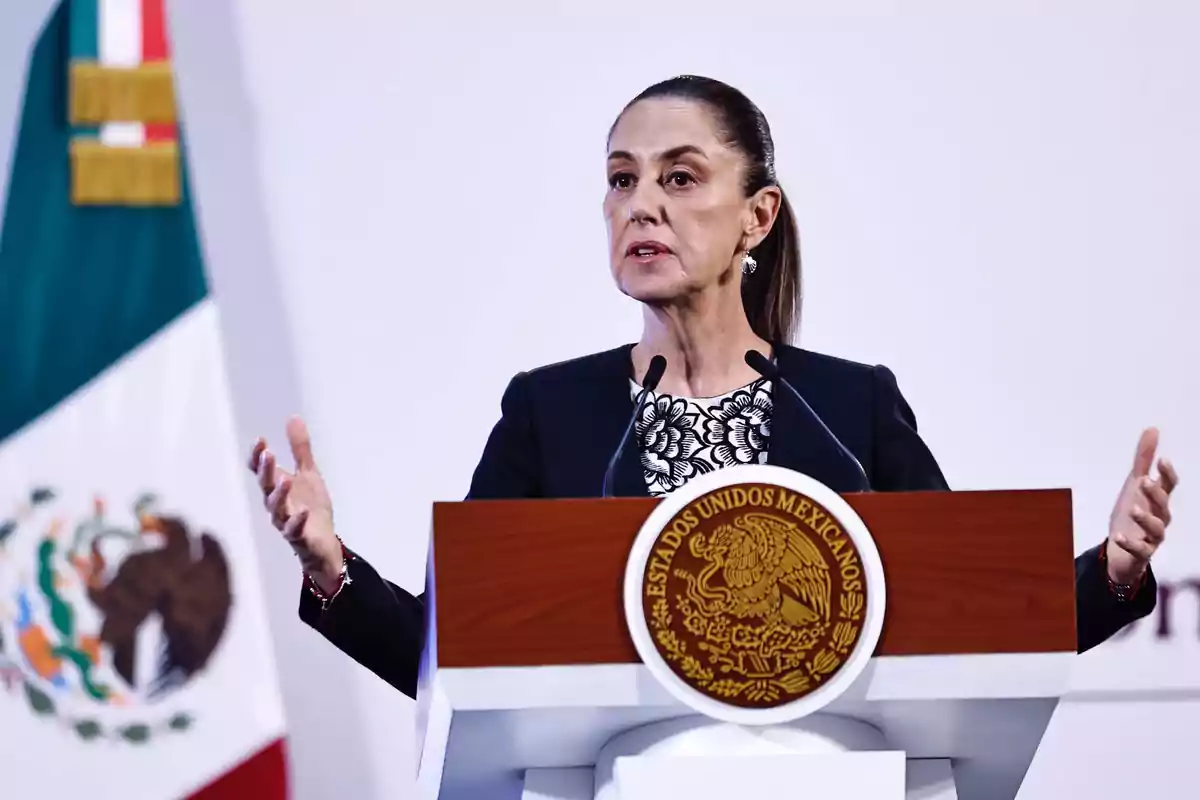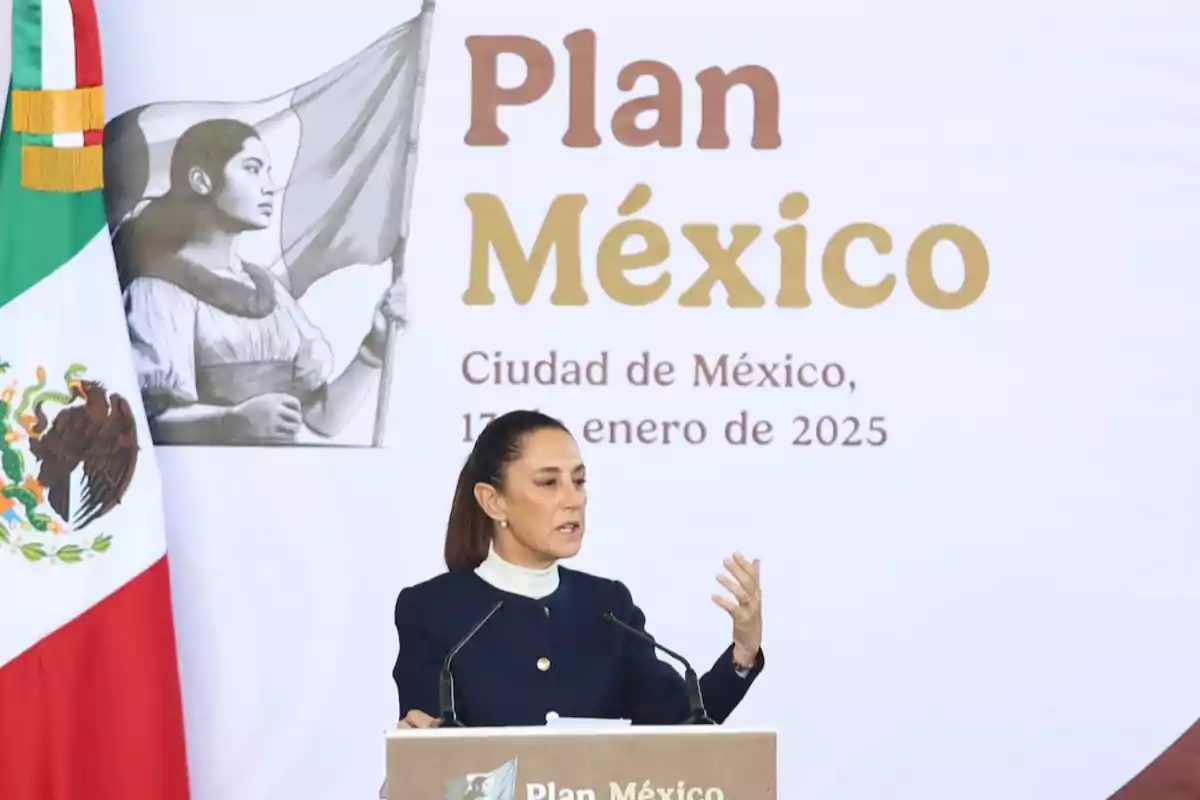
Donald Trump announces tariffs on Mexico starting February 1
The United States seeks to impose 25% tariffs on products from Mexico and Canada
The possible imposition of 25% tariffs on Mexican products by Donald Trump has caused uncertainty in the trade relationship between both countries. The measure would affect key sectors such as manufacturing and the automotive industry, which heavily depend on the U.S. market.
Negotiations to halt the crisis

The government of Claudia Sheinbaum has initiated negotiations to halt the threat and avoid damage to the national economy. Although the authorities are confident in a diplomatic solution, they have also prepared a contingency plan in case the tariffs materialize, aiming to protect the most affected sectors.
Impact on the Mexican economy
Analysts warn that this scenario could slow economic growth and increase the cost of export products. The situation tests Mexico's trade strategy in an uncertain international landscape. Moreover, businesspeople and economists have pointed out that the measure would directly affect factory and assembly workers who depend on foreign trade.
Since the implementation of the USMCA, Mexico has strengthened its position as a strategic partner of the United States, with trade exceeding 600 billion dollars annually. However, Trump's protectionist policy seeks to reduce the trade deficit with Mexico, justifying the tariffs as a pressure measure to renegotiate certain terms of the treaty.
Sheinbaum responds with the Mexico Plan

In response, the Mexican government has announced the Mexico Plan, a strategy to boost national production and attract investments of 277 billion dollars. This initiative aims to mitigate the impact of the tariffs and consolidate Mexico as a key manufacturing hub in the region, generating more jobs and reducing dependence on exports to the U.S.
The automotive and agricultural sectors would be among the most affected. Companies like Ford, General Motors, and Nissan have expressed concern about the additional costs that tariffs would entail, which could affect the final price of vehicles in the U.S. Additionally, avocado and tomato producers fear that their products may lose competitiveness in the U.S. market.
Faced with the risk of a trade escalation, the Secretary of Economy, Raquel Buenrostro, will meet with her U.S. counterpart to seek bilateral solutions. Additionally, Canada has shown its support for Mexico in this trade conflict, fearing that similar measures could be applied to its own exports.
More posts: